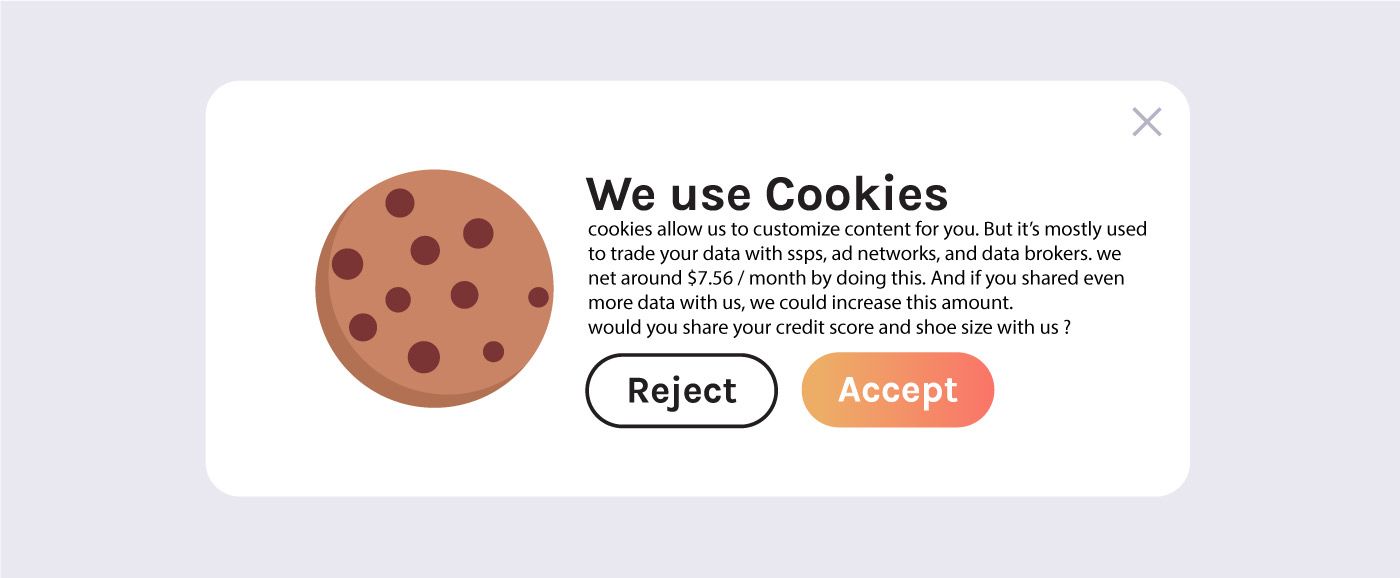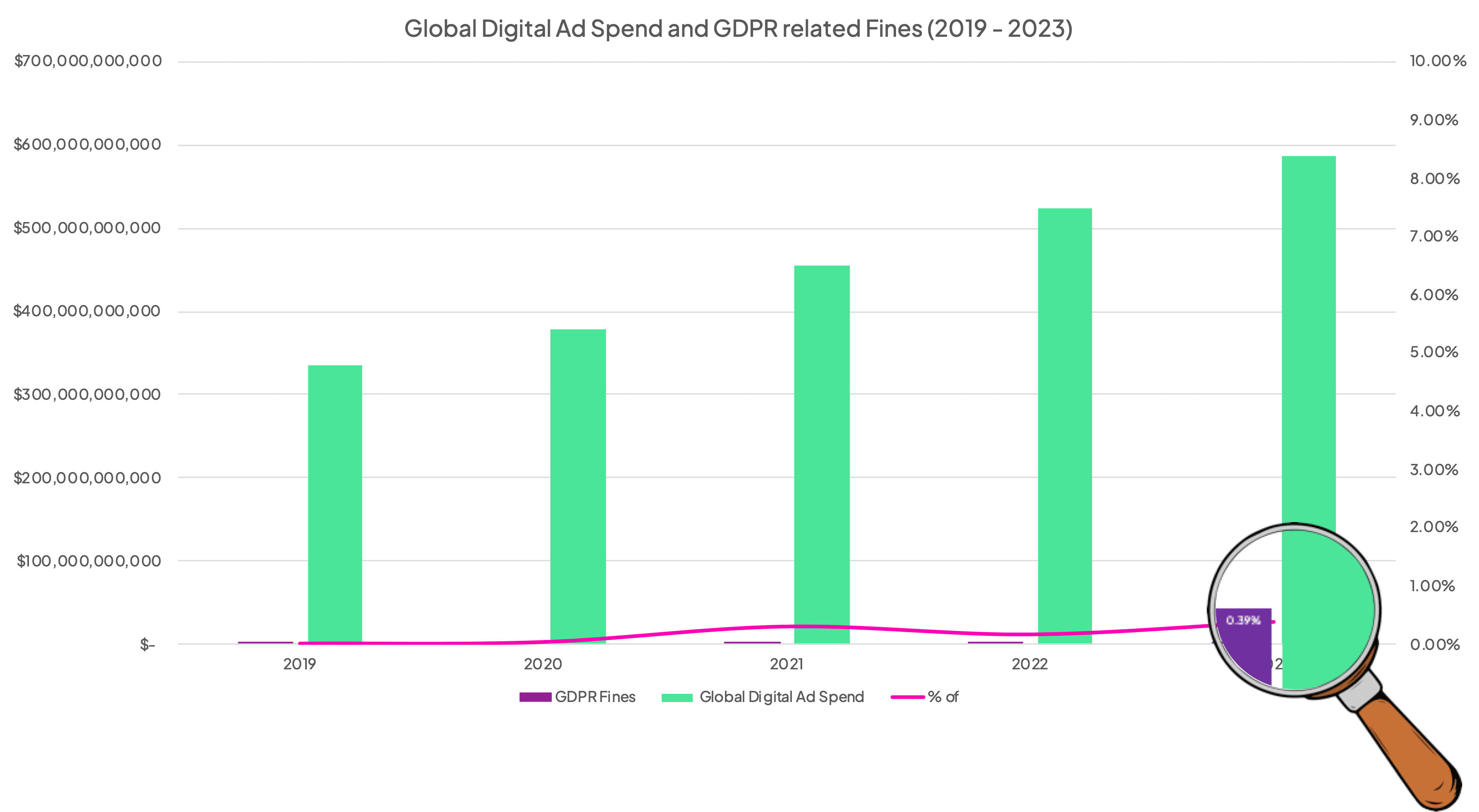Platform
Use Cases
Many Possibilities. One Platform.
AI and Automation
The Always-on Incrementality Platform
Solutions
Teams
Built for your whole team.
Industries
Trusted by all verticals.
Mediums
Measure any type of ad spend
Use Cases
Many Possibilities. One Platform.
AI and Automation
The Always-on Incrementality Platform
Teams
Built for your whole team.
Industries
Trusted by all verticals.
Mediums
Measure any type of ad spend

I declare 2024 as the year of privacy.
No longer will our data get traded around between publishers and ad platforms. If an Advertiser wants to know how and why we purchased their products – they could just ask us.
We will not “allow tracking”. That’s absurd.
We as users call the shots now.
In the metropolis of mobile marketing, where data flowed like streams of information, the year 2024 emerges as a sobering year - a time where user privacy comes before the right of Advertisers / Publishers to track.
For over two decades, users may have accepted the terms of the deal: we’ll share some of our data with you, and you’ll give us free content.
The deal was fine as long as users believed that their data would remain safe. While the majority of users did not stop to think about what may or may not be happening with their private data. Those who became aware were appealed by the easiness data got passed around, how often liking a picture of a clock on a friends’ social feed will trigger an attack by an army of clock advertisements, email newsletters about “clocks in fashion”, and every site a user goes to being covered with clocks. 
There were also who became unwillingly aware; Users whose data was sold to the highest bidder (often, literally), and ended up in the wrong hands. Those who had their identity stolen, or misused, would often have no idea that this was happening, until it was way too late.
When looking back at the original idea of collecting users’ data – the intent was positive. Before digital Advertising, there were membership clubs, consumer clubs, frequent flyer cards, costo cards, and so on. Users voluntarily shared personal data for benefits, discounts. This allowed Advertisers to learn about their customers, improve their services, and products.
Even the cookie didn’t start with any bad intent. The original idea of the cookie was to allow websites to remember users’ preference, but not to be used for cross-site tracking. The cookie was first used to track users across websites by realizing an exploit in browsers and operating systems. An exploit that took almost 30 years to “fix”.

If the browsers wanted to fix the issue early on, the Privacy loophole could have been closed in minutes at the expense of personalization. Back then, access to user level data seemed like a reasonable trade between users and site owners, and here comes the problem.
Only sci fi authors, and nutjobs could have imagined how much of our lives would be moved to the digital realm. How our digital entity will far supersede our physical, to the point where if you’re not online – you no longer exist.
Data became the most rewarding commodity. It was referred to as the new Oil, and the analogy was perfect. Oil being a natural, high profit yielding, dirty commodity, where overusing it will and is leading to the demise of our world.
The deal stopped being fair. And it was inevitable for the loophole to be closed.
Similar to the Oil industry , the data industry was controlled by some of the worlds’ largest companies. These companies understood and leveraged the opportunity that data had presented to them. Just like Oil field owners, or “Tycoons”.
By the time we the people understood how big of a mistake exposing our data to a third party was – it was too late to fix this with a swift click of a button. The internet by then had been somewhat regulated, standardized, with some of the worlds’ largest companies making their profit and growth on account of this new dark and dirty new commodity. Those setting the standards were the same “tycoons” profiting from the access to the data.
Many of us in the marketing space, may have believed at some point that the General Data Protection Regulation (GDPR) would be the game changer, when it came to privacy.
Over the past five years since GDPR was introduced, hardly nothing has happened. GDPR turned out to be nothing more than just another internet tax allowing governments to scrutinize large companies by fining them, sums that are insignificant, as the graph below shows.

Over the past years, it became clear that GDPR was not leaving a mark when it comes to forcing companies to change how they handle user level data.
Apple is a tycoon. But unlike other tycoons out there, Apple’s vision for the future has always been more of a utopia, rather than the dystopian.
Apple has been more than just the frontrunner for privacy, Apple made the moves others were not planning to make, ever.
Looking at the evolution in privacy related changes over the past 15 years, Apple is the clear leader on the number of drastic changes, and willingness to make changes. Considering that Apple is the highest valued company in the world, Apple’s take on privacy does mean something.

No more delays. No more postponements. All bets are off.
After cutting the cord to 3rd party user level data with App Tracking Transparency, Apple is putting the final nail on access with the introduction of Privacy Manifest. Forcing publishers to declare and disclose: why, what, and who to, user level data may be used for.
Apple’s moves have been more than just written manifesto that companies needed to sign, but not follow, as enforcement was impractical, or not deterring.
Apple’s move cuts through flesh, but cutting the actual access, unless users provide their explicit consent.
And when Apple meant explicitly, they really meant it, therefore, the question users get asked is not prettied up with: “Would you like to share some data with the publisher: Yes, No”.
Apple posed the question as harsh as the reality has been:
Allow “App” to track your activity across other companies’ apps and websites?
Your data will be used to measure advertising efficiency.
With the options being:
There is no question here. 2024 is the year of privacy.

Maor is the CEO & Co-Founder at INCRMNTAL. With over 20 years of experience in the adtech and marketing technology space, Maor is well known as a thought leader in the areas of marketing measurement. Previously acting as Managing Director International at inneractive (acquired by Fyber), and as CEO at Applift (acquired by MGI/Verve Group)